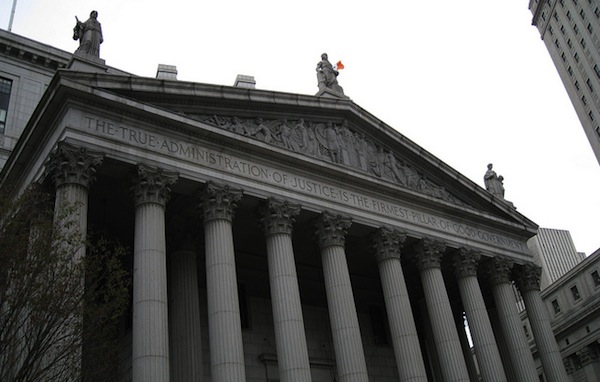
In February 2013, a Massachusetts Superior Court Judge barred the use of Twitter in the courtroom by reporters covering a murder case — while still allowing other forms of media such as cameras and liveblogging. Judge Peter Lauriat later said reporters could send tweets only from a separate room while covering the murder trial of Nathaniel Fujita.
Liveblogging okay, but livetweeting not? It was another example of how unsettled the rules are when it comes to social media in the courtroom.
Marilyn Krawitz, a law lecturer at the University of Notre Dame Australia, has studied social media and the criminal justice system in the U.S., the U.K., and Australia. For journalists covering the courts, the good news is that a growing number of courts allow tweeting and other forms of live chronicling, but the rules for how vary widely, not just across countries, but even within the same state, county, or federal court jurisdictions, Krawitz said. While no tweeting — or cameras, for that matter — are allowed in the U.S. Supreme Court, a metro reporter is often able to tweet from their local district court. (Our friends at the Digital Media Law Project have a handy guide that looks at different jurisdictions.)
Krawitz has studied the issue for a number of years, publishing several papers that look into the effects of social media on the criminal justice system. She spoke recently at the Berkman Center for Internet and Society and said plenty of uncertainty remains when it comes to social media and the courts, between how journalists use it, as well as judges, jurors, and lawyers.
Even when reporters believe they know the social media guidelines for a given court, they can still run into problems, Krawitz said. In January 2012, Guardian sports reporter Jamie Jackson tweeted the name of a juror during a trial, as well as information presented in court while the jury was not present. The juror was replaced and the judge banned the use of Twitter during the trial.
In April 2012, a judge declared a mistrial after a reporter at The Topeka Capital-Journal accidentally tweeted a courtroom photo that showed a juror.
In some ways, social media is just another spin on the age-old tension between journalists and the courts, a tension that’s often focused on technology. The benefits of using Twitter and Facebook in court are obvious to journalists, Krawitz said: “The public becomes more engaged, you hold the court up to more scrutiny,” and you don’t have to leave the courtroom to publish information, she said. But in the broader sense, Krawitz said things like Twitter and Facebook help support “the idea of what happens in courts should be open to the public, that the public has a right to know, and that increases the probability that what happens [in court] will be above board.”
The number of examples of this conflict keeps building up. In 2011, the Arkansas Supreme Court order a retrial for a man convicted of murder because a juror tweeted during the case. That same year, a juror in the U.K. was sentenced to eight months in jail after contacting a defendant on Facebook.
Last December, the U.K.’s attorney general issued an advisory warning the public that publishing information about court cases on social media could potentially lead to being held in contempt of court. In other court systems, judges are considering banning phones and mobile devices, or asking jurors to disclose their social media accounts, Krawitz said.
One reason the criminal justice system has such a complicated relationship with social media is because lawyers and judges don’t always use or understand the technology, Krawitz said. “If judges use social media, it can be permanent and it can be public and it has potential for the public to lose confidence in the judiciary,” Krawitz said.
In her research, Krawitz found that judges, like the rest of us, can make the mistake of tweeting or posting the wrong thing or friending the wrong person. But for judges, the consequences can be more severe than online embarrassment.
After a judge in Florida was found to be Facebook friends with a state attorney in a trial he was hearing, the case was later appealed to another district. In 2009, Ernest “Bucky” Woods, a judge in Georgia, resigned from his post after it was discovered he was exchanging Facebook messages with a defendant.
In a way, judges face some of the same problems as journalists when it comes to social media: The appearance of a “friendship” on Facebook or Twitter may not be as strong a tie as it seems. A number of states have taken steps to prevent judges and lawyers from friending one another. But whether or not being connected on Facebook is a sign of true and lasting friendship, Krawitz said it often comes down to public perception: “A reasonable person could believe there was an appearance of impropriety.”
As a result of these kinds of policies, as well as the confusion around them, some judges simply forgo being involved in social media at all, Krawitz said. “These judges, I think, don’t understand how social media works — or it’s just too easy for them in an impulsive moment to write on social media and lose their job,” Krawitz said.
While a policy of abstinence might seem logical, it can create a more problems in the future. If a judge doesn’t engage with social networks, what happens when those judges are called on to make rulings in cases involving online media, Krawitz asked.
Image of New York courthouse by Jorge Martinez used under a Creative Commons license.